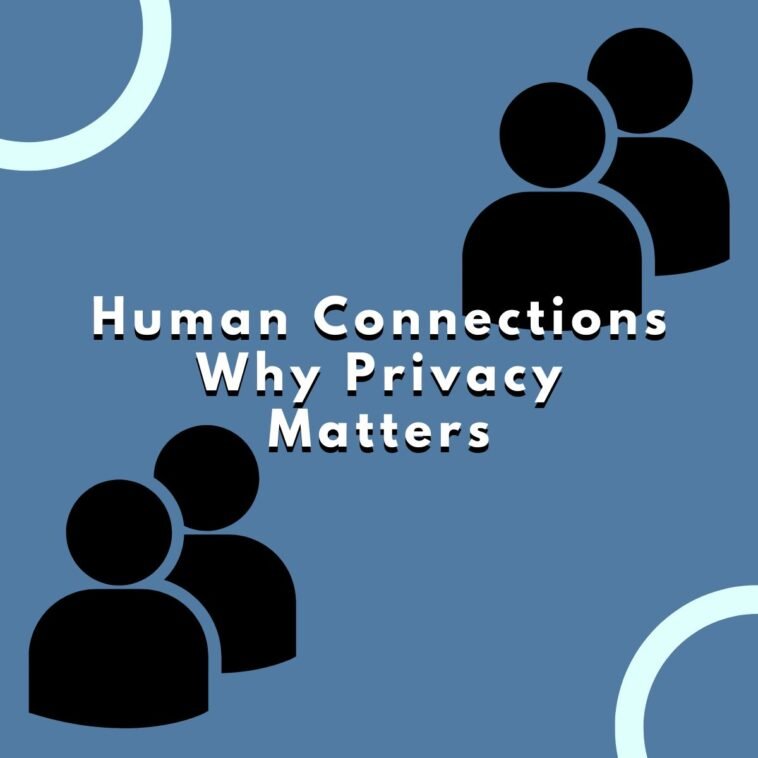Privacy is a fundamental aspect of human interaction, essential for preserving individual autonomy and fostering healthy relationships. As Aristotle famously remarked, “Man is a social animal,” underscoring the inherent need for human connection. However, within the realm of social interaction lies the equally important concept of privacy, which delineates personal boundaries and safeguards individual freedom. In the following discourse, we delve into the nuances of privacy, exploring its significance, common misconceptions, and the principles that underpin its respect.
Table of Contents
- Understanding Privacy and Boundaries:
- Common Misconceptions and Oversteps:
- The Importance of Respecting Privacy:
- Principles of Privacy Respect:
Understanding Privacy and Boundaries:
Privacy, in its essence, encapsulates the right to autonomy and self-determination. It is the ability to control one’s personal information, spaces, and decisions without undue intrusion or interference. Despite the freedoms of speech and opinion that individuals possess, there exists a critical need for boundaries to ensure mutual respect and dignity in human interactions. For instance, parents may feel entitled to intervene in their children’s lives, yet such actions often encroach upon the child’s privacy and autonomy. Similarly, within marital relationships, partners may expect complete transparency and cooperation, sometimes overlooking the importance of personal space and boundaries.
Common Misconceptions and Oversteps:
Misconceptions surrounding privacy often lead to inadvertent oversteps in personal relationships. Parents may justify invasive behaviors, such as inspecting their children’s belongings without consent, under the guise of protection and guidance. Similarly, in intimate partnerships, the expectation of sharing every detail of one’s life may inadvertently erode individual privacy and autonomy. These misconceptions not only undermine personal boundaries but also jeopardize the trust and respect essential for healthy relationships.
The Importance of Respecting Privacy:
Respecting privacy is paramount for maintaining trust, autonomy, and emotional well-being in relationships. Violations of privacy can lead to feelings of betrayal, resentment, and mistrust, ultimately eroding the foundation of any interpersonal connection. Recognizing and honoring individual boundaries fosters an environment of mutual respect and understanding, essential for nurturing healthy and fulfilling relationships. Moreover, respecting privacy serves as a cornerstone of ethical conduct, reflecting one’s regard for the dignity and autonomy of others.
Principles of Privacy Respect:
Respecting privacy entails active listening, empathy, and sensitivity to verbal and nonverbal cues. It involves acknowledging and honoring individual boundaries, refraining from intrusive behaviors, and valuing personal autonomy. By cultivating a culture of respect for privacy, we can create spaces where individuals feel safe, understood, and valued in their interactions. Practical manifestations of privacy respect include seeking consent before entering someone’s personal space, refraining from prying into others’ personal affairs, and refraining from passing judgment without understanding the full context.
privacy is not merely a legal or social construct but a fundamental human right essential for preserving individual dignity and autonomy. As Richard Branson aptly stated, “Respect is how to treat everyone.” By embodying respect for privacy in our interactions, we uphold the principles of empathy, understanding, and mutual regard that form the bedrock of meaningful human connections. Let us commit to fostering a culture of privacy respect, where every individual’s boundaries are honored, and their autonomy is cherished.
Please Subscribe Us to get updated with Qatar News, Saudi News, Kuwait News, Health News, UAE News, Iqama, Visa, Jobs, Banking and More.



